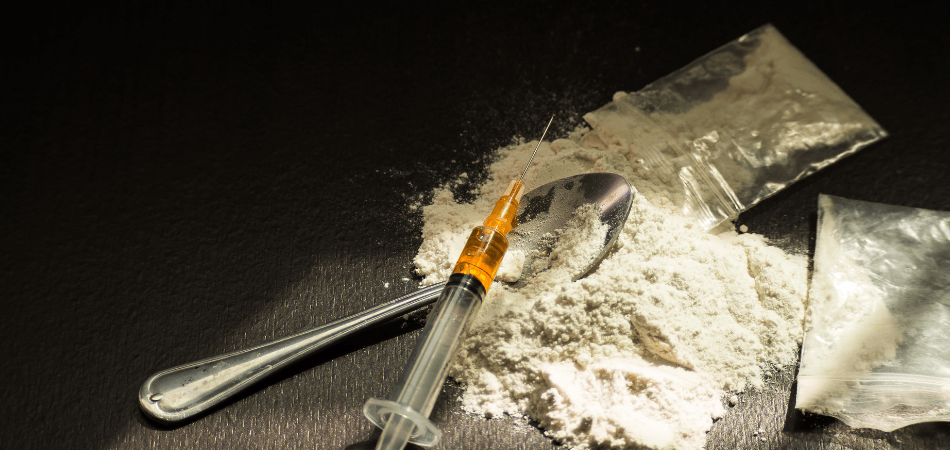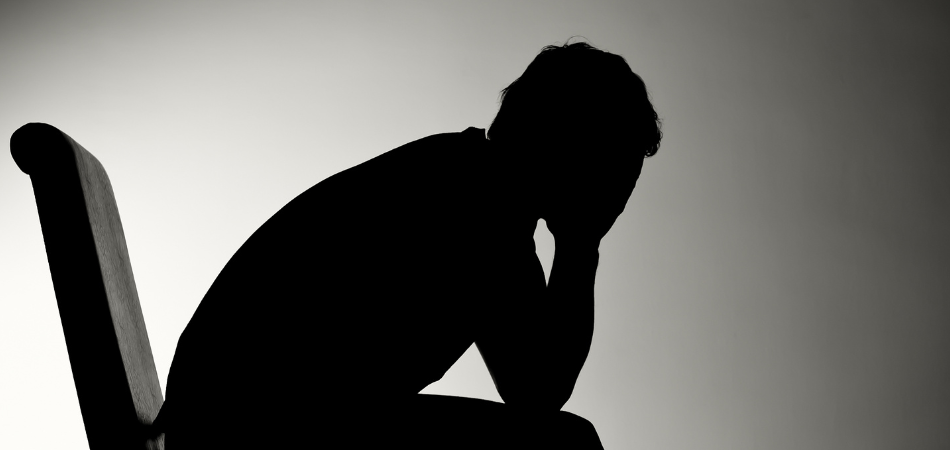
Written by:

Medically Reviewed by:
Last Updated:
February 14th, 2025
Heroin addiction
What is heroin?
Heroin is an illegal and highly addictive opioid drug that comes from morphine, a natural substance found in the seed pods of opium poppy plants. It typically appears as a white or brown powder or as a sticky black substance known as black tar heroin. Heroin is known for its powerful effects on the brain and body, providing a euphoric high that makes it extremely addictive.
In the UK, heroin is classified as a Class A drug, meaning its possession, production, and distribution are illegal. Those caught with heroin can face severe legal penalties, including prison time. Despite these laws, heroin use remains a significant issue due to its addictive nature and the devastating consequences it can bring.

What makes heroin so addictive?
Heroin is highly addictive because of the way it interacts with the brain’s reward system. When heroin enters the body, it is quickly converted to morphine, which binds to opioid receptors in the brain. These receptors control feelings of pain and pleasure and when activated, they produce intense euphoria and relaxation. This ‘high’ can create a powerful craving for repeated use.
Over time, the brain becomes dependent on heroin to feel pleasure, as natural dopamine production is reduced. This leads to tolerance, where higher doses are needed to achieve the same effect.
How can a heroin addiction impact a person’s life?
Heroin addiction can affect every part of a person’s life, often in ways they might not expect at first. What starts as an occasional escape or relief can turn into something that disrupts a person’s entire life.
Physical health issues
Heroin use can lead to some noticeable changes in physical health over time. Users may experience infections, especially from needle injections or weight loss as the drug starts to take priority over taking care of themselves. The immune system often weakens, making it harder for the body to fight off illnesses.
Over time, heroin use can also lead to damage to vital organs like the liver and kidneys, along with lung issues, particularly if the drug is smoked or injected improperly.
Another serious impact is the risk of developing collapsed veins, making it more difficult to inject heroin and leading to further complications.
Chronic constipation and gastrointestinal problems are also common due to how heroin affects the digestive system.
As the addiction progresses, maintaining overall health becomes increasingly difficult and often, people don’t even notice how much their bodies have changed until it’s difficult to reverse.
Mental health challenges
Mental health is often impacted, too. Many people using heroin end up feeling anxious, depressed or trapped in a cycle of needing the drug just to feel ‘normal’. It becomes harder to find joy in everyday things and without the drug, moods can swing.
The risk of overdose and death
One of the most serious risks that come with heroin addiction is the potential for overdose. Because heroin’s effects on the body are so strong, it can be hard to control how much is too much, especially as tolerance builds. In the UK, heroin and morphine were linked to over 1,200 drug-related deaths in 2022, highlighting just how dangerous using these substances can be. The possibility of overdose is ever-present and unfortunately, the consequences can be fatal.
Financial struggles
Keeping up with a heroin habit can get expensive, especially as tolerance builds. This can lead to financial problems, with money being spent on drugs instead of everyday essentials. It’s common for people to run out of savings or struggle to hold down a job, and financial stress adds another layer of difficulty to life with addiction.
Legal troubles
Because heroin is illegal, legal issues are a real concern. From possession charges to other criminal activity that might come with trying to maintain the addiction, some users find themselves facing fines or even jail time. These legal problems can add another complication to an already challenging situation.
In the UK, it was reported by then PM Boris Johnson that there are over 300,000 heroin and crack cocaine addicts in the UK, both of which contribute to half of the total burglaries reported in the country every year.
Losing direction
One of the less obvious effects of heroin addiction is how it can make people lose sight of their goals and dreams. Interests and ambitions might get pushed aside as the addiction takes up more and more time and energy. For many, the things they once cared about no longer feel within reach, leading to a sense of being stuck or lost.
What are the signs of heroin addiction?
It’s important to know if you or someone you care about is addicted to heroin because the sooner you spot the signs, the sooner you can get help. Heroin addiction doesn’t always look obvious at first but it can quickly take over a person’s life, causing serious harm to their health and well-being. Recognising the signs early on can make all the difference in preventing long-term damage and getting the right support in place.
Physical signs
- Drowsiness or nodding off frequently
- Sudden weight loss
- Small, constricted pupils
- Bruises or “track marks” from injecting heroin
- Flushed skin or constant itching
- Slurred speech and slowed movements
Psychological signs
- Difficulty concentrating or memory loss
- Extreme mood swings
- Intense feelings of depression or anxiety
- Paranoia or hallucinations
- Loss of interest in activities that once brought joy
- Impaired judgement or decision-making
Behavioural signs
- Withdrawal from social activities and relationships
- Sudden changes in social circles or isolation
- Financial problems due to drug spending
- Neglecting responsibilities at work, school or home
- Secretive or deceptive behaviours, such as lying about whereabouts
- Engaging in risky or criminal behaviours to obtain heroin
If you have noticed any of these signs in yourself or someone else, it’s important to seek a medical evaluation straight away. Early intervention can be key in starting the path toward recovery and preventing further harm.
Where can I get help for heroin addiction?
At Liberty House, support for heroin addiction begins with a medically monitored detox to help ease withdrawal symptoms. Throughout this stage, you’ll be cared for by professionals who understand the challenges of heroin dependency and work to ensure a safe and comfortable detox experience.
Once detox is complete, the recovery journey continues with a blend of traditional therapies like Cognitive Behavioural Therapy (CBT) and Dialectical Behavioural Therapy (DBT), designed to explore the deeper emotional triggers behind addiction. Alongside these, holistic therapies such as yoga and art therapy are offered, nurturing a sense of calm and promoting self-reflection.
To help you sustain your recovery, Liberty House provides aftercare services, offering ongoing support through tailored plans, group sessions and practical tools that help you stay on track long after leaving rehab
For more information on our heroin rehab programme, reach out to Liberty House today. We’re ready and waiting for your call.
Frequently asked questions
(Click here to see works cited)
- “Heroin.” Heroin – an Overview | ScienceDirect Topics, www.sciencedirect.com/topics/chemistry/heroin. Accessed 3 Oct. 2024.
- Smith, Paul Breen and Rebecca. “Deaths Related to Drug Poisoning in England and Wales: 2022 Registrations.” Deaths Related to Drug Poisoning in England and Wales – Office for National Statistics, Office for National Statistics, 19 Dec. 2023, www.ons.gov.uk/peoplepopulationandcommunity/birthsdeathsandmarriages/deaths/bulletins/deathsrelatedtodrugpoisoninginenglandandwales/2022registrations.
- “From Harm to Hope: A 10-Year Drugs Plan to Cut Crime and Save Lives.” GOV.UK, www.gov.uk/government/publications/from-harm-to-hope-a-10-year-drugs-plan-to-cut-crime-and-save-lives/from-harm-to-hope-a-10-year-drugs-plan-to-cut-crime-and-save-lives. Accessed 3 Oct. 2024.






